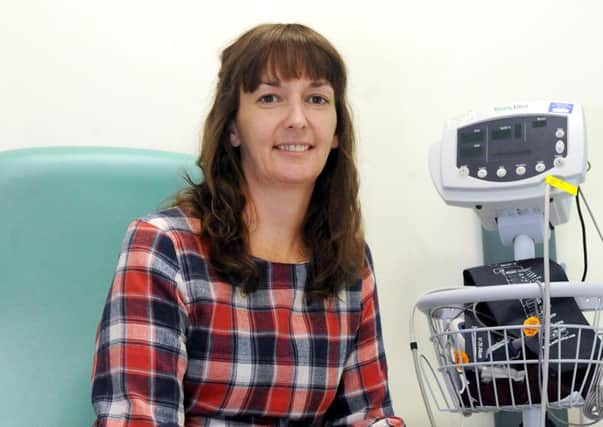Ebola nurse Pauline Cafferkey discharged from hospital


Ms Cafferkey, 40, from Cambuslang, South Lanarkshire, was flown from Glasgow last Tuesday by an RAF Hercules to the hospital which has the UK’s only high level isolation unit.
Ms Cafferkey contracted the virus in December 2014 while working as a volunteer nurse in Sierra Leone at a Save the Children treatment centre in Kerry Town.
Advertisement
Hide AdAdvertisement
Hide AdIn a statement the hospital said: “We can confirm that Pauline is not infectious.
“The Ebola virus can only be transmitted by direct contact with the blood or bodily fluids of an infected person while they are symptomatic.”
Ms Cafferkey spent almost a month in the Royal Free’s isolation unit in January 2015 after being the first person to be diagnosed with the virus in the UK.
She was said to have made a full recovery and returned to work as a public health nurse at Blantyre health centre.
However, she was readmitted to the Royal Free in October last year after it was discovered that Ebola was still present and that she had suffering from meningitis caused by the virus.
Health Secretary Jeremy Hunt tweeted: “It’s fantastic news that Pauline Cafferkey has been discharged from hospital. Outstanding care again from @RoyalFreeNHS #NHSheroes.”
Last month Ms Cafferkey praised Dr Michael Jacobs who has led her treatment and who was honoured with a knighthood.
In October, Dr Jacobs made a transatlantic dash from a conference in San Diago after hearing that the nurse had been readmitted to the Royal Free.
Advertisement
Hide AdAdvertisement
Hide Ad“I feel his honour is very well deserved. Dr Jacobs went above and beyond what was required.
“He is a very humble man who always emphasised that everything was a team effort,” she said.
Ebola, a viral illness which can start with symptoms including sudden fever and muscle pain goes through various stages and can lead to both internal and external bleeding.
The most recent outbreak of the disease, first identified in 1976, in West Africa was reported in March 2014. Since then more than 11,000 people died from the disease in Sierra Leone, Liberia, Guinea, Nigeria, the US and Mali.
In January the World Health Organisation declared the last of the countries still affected, Liberia, to be Ebola-free.